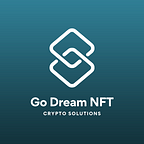Ethereum Ultimate Guide and its Relation to NFT 2023.
The purpose of this guide is to provide a definitive resource for anyone who wants to understand what is Ethereum, how they work, and its relationship with NFT. We will aim to provide some background information on them as well as discuss some of the key issues relating to NFTs. This article will provide an overview of what Ethereum is, why it matters in the NFT space, and whether you need to be a part of it.
What is Ethereum?
Ethereum is a decentralized platform that runs smart contracts: applications that run exactly as programmed without any possibility of fraud or third-party interference. People use Ethereum to create new businesses, applications, and contracts. It has already inspired many new startups and developers to create their own projects based on its platform. One of the most interesting aspects of Ethereum is that it uses a new type of digital asset, called NFTs.
What is NFT?
What is a “non-fungible token”? A non-fungible token is a token that is not related to any other token in a blockchain network. This is because a token is a type of asset and not a type of currency. Unique NFTs cannot be duplicated. They are also not subject to predefined supply or demand.
Difference Between Ethereum And NFT.
There are several differences between the price of Ethereum and NFT. In the blockchain, ownership is based on supply and demand. In the NFT market, however, the demand is high and there is a high scarcity of the tokens. Despite this, there is still a demand for digital tokens from collectors, gamers, and investors.
The main difference between these two types of coins is that Ethereum’s a global public utility, while NFTs are a decentralized asset. Any exchange that accepts Bitcoin can trade the latter The difference between the two currencies is the way that the two systems work. Ethereum users are not locked to any particular platform
Ethereum and NFT Ownership
In contrast, creators create NFTs. They will earn royalties from the sale of their NFTs. However, the current system is not efficient and accurate. Creators do not get paid for resale; they are paid for the work they do in creating the NFT. This is because NFTs are similar to Ethereum’s, but they solve different problems. The NFTs are similar, but they are different. Ethereum has a more secure platform, but the NFTs are similar in the fact that they have a lower price.
Another difference between NFT and ETH is their ability to prove ownership. The NFT is very easy to prove, whereas the ETHs cannot be. An NFT is a digital file with a private key. An owner can prove ownership by signing a message to purchase or sell anything. The owner can also earn royalties by reselling their asset on any market that supports the NFT.
As a cryptocurrency, an NFT can validate a piece of digital artwork. The NFT is a digital form of proof of ownership in the real world, and this is the same with a digital collectible. The NFT can store data such as images and movies. They verify ownership as well as authenticate artworks.
NFT and Ethereum Popularity
The NFT market is booming. Many digital artists and celebrities have started to use NFTs for their art. The popularity of NFTs has exploded, and NFTs have been used by many celebrities. As an added benefit, they are more reliable than traditional currency. In addition to being a form of currency, they can be a representation of unique assets. Among the advantages of NFTs are that they can store and transfer assets
The NFT marketplaces are notorious for their high degree of security. This is because of the fact that they use proprietary software that runs outside of the crypto blockchain. This means that thieves have become increasingly successful at stealing NFTs. A common scam involves gaining access to the market and relisting prized NFTs at ridiculously low prices. Once the prized NFTs are relisted, the thieves will be able to trade them for full value.
Minting NFT! What is minting?
Minting NFTs is a process of creating and issuing digital tokens that represent assets or services. A key step in the issuing and trading of NFTs. On a blockchain platform, minting entails creating new tokens, issuing them, and verifying the identity of the issuing parties. Minting is essential to ensure that the NFTs are a reliable and stable means of representing assets.
An NFT can be stolen before it has been released, or it can be resold as an NFT. It is important to note that both of these types of digital tokens have different uses. Some are more useful than others. Make sure you have the appropriate permissions to use a non-fungible token.
Conclusion
The ETH and NFT communities are rich with potential. They both have the potential to form the foundation for a new type of digital currency and to help users automate their lives. They also have the potential to work together to create amazing things.
Here are some of the few differences that we compiled for you:
- Ethereum does not support NFTs.
- Ethereum does not store or use NFTs.
- Use NFTs to pay for services.
- NFT offers a way to trade Ethereum doesn’t.
- Ethereum does not offer a way to purchase NFTs.
- NFTs offer a way to pay for goods or services.
- Ethereum does not offer a way to use NFTs to pay for debts.
- Ethereum does not offer a way to use NFTs to store value.
